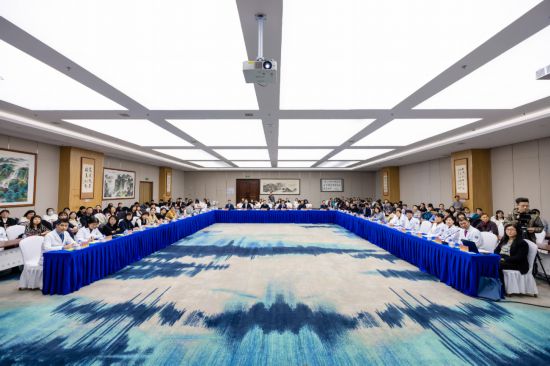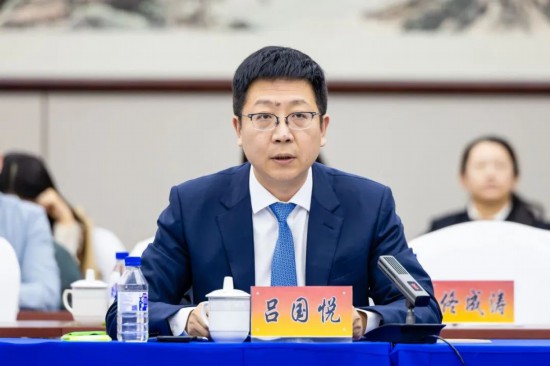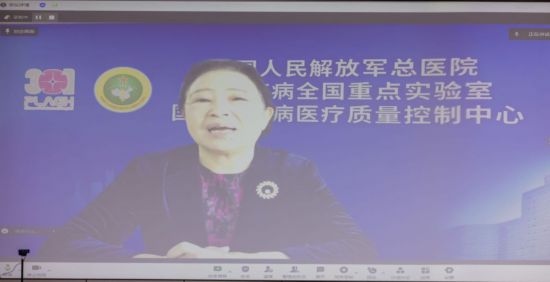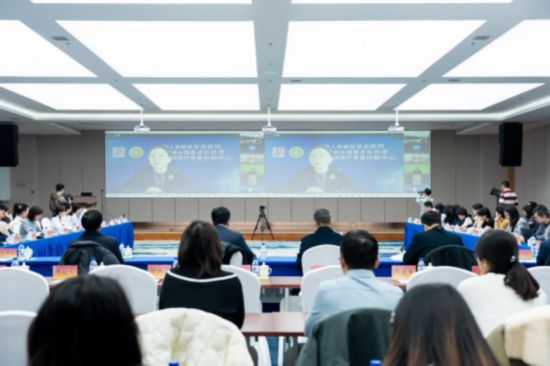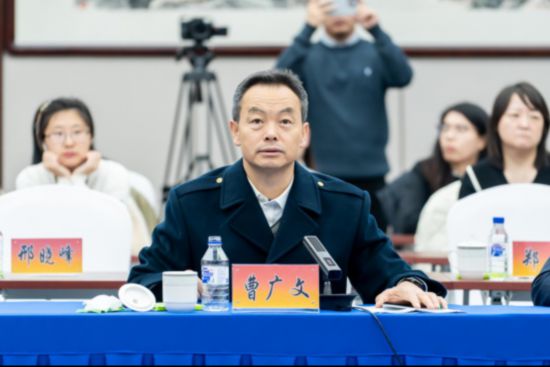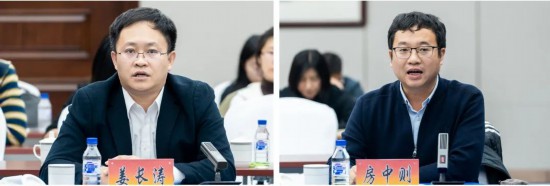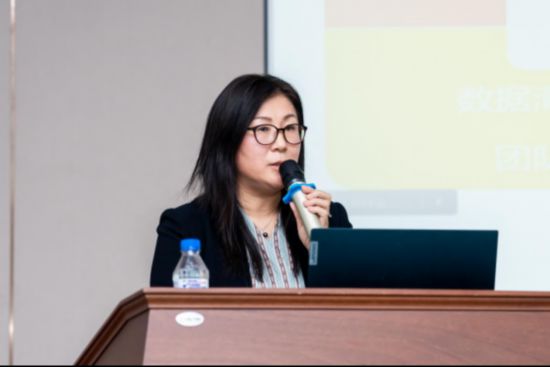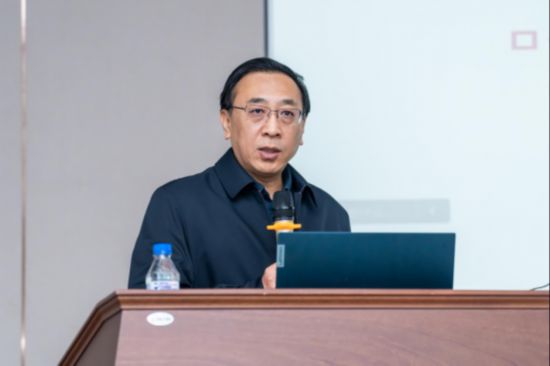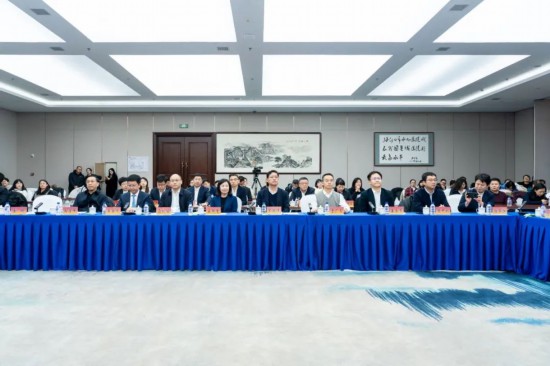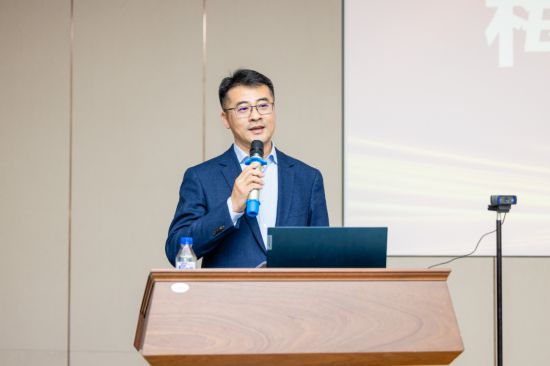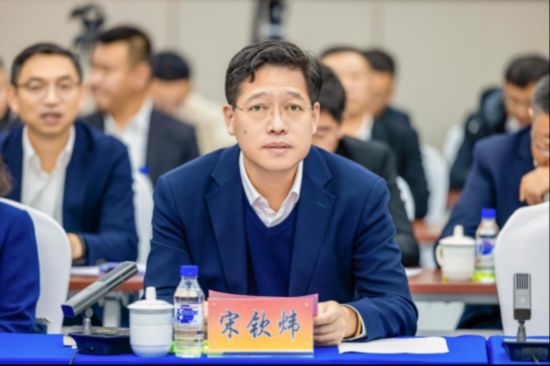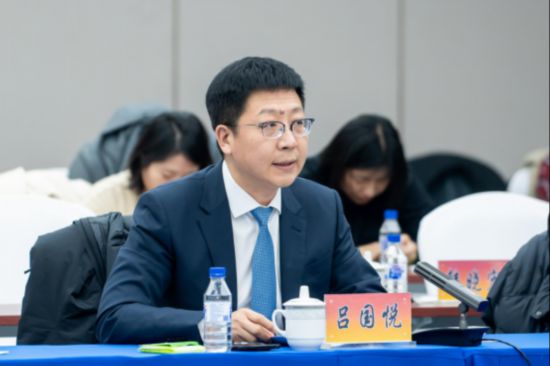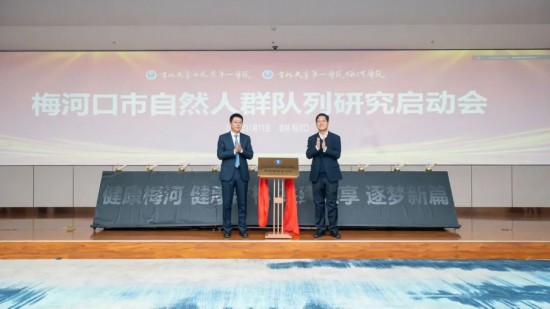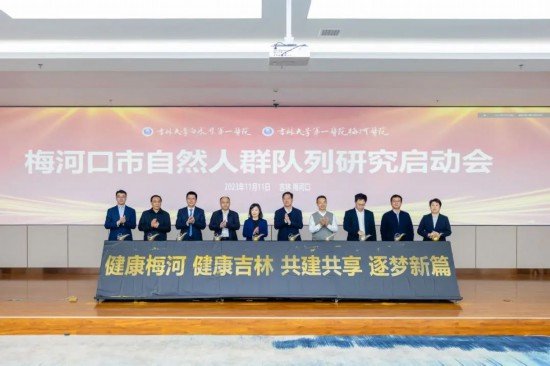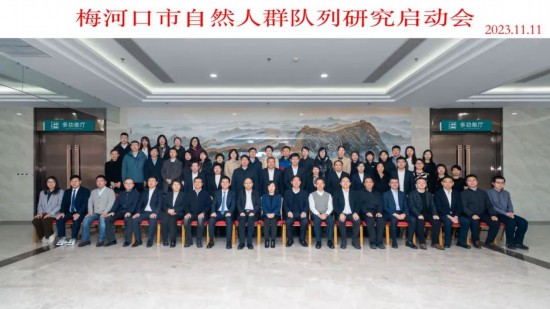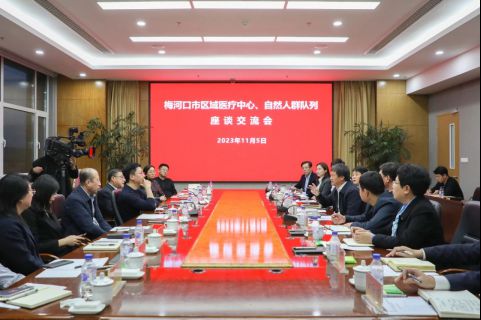Due to the rapid development of artificial intelligence, many people finally begin to understand and accept the fact that AI is not far away from us, and it is changing our world. When looking at the opportunity of LLM (large language model), the author thinks deeply about three questions: what is the next development future of LLM, which landing directions are more promising, and what preparations we should make. I hope I can inspire you.
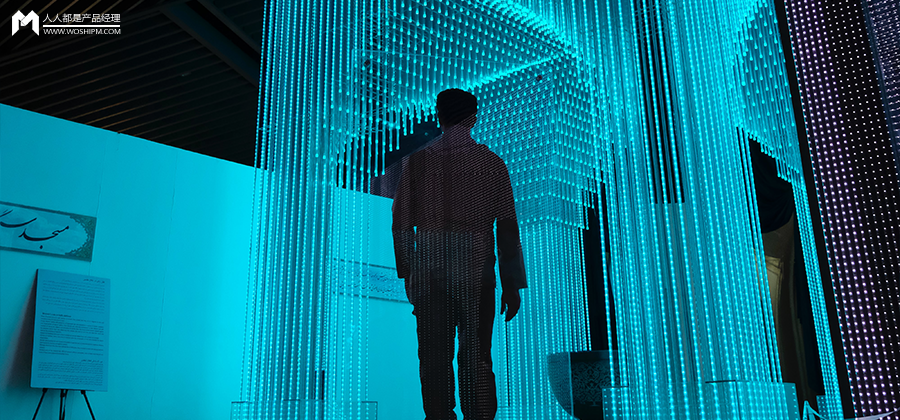
Recently, I have been looking at LLM opportunities myself, and I have had a lot of exchanges with entrepreneurs, investors and practitioners. The general feeling is "I know he is fine, but what should I do?" . In the process of being dragged by OpenAI, many opportunities have emerged, and everyone is in an excited and confused state.
Especially after OpenAI teamed up with Microsoft to knock over the text application (Jasper/Grammarly), office software (Microsoft Copilot), development framework (OpenAI plug-in for langchain) and low code (news just released today), this confusion further superimposed the fear of the centralized LLM giant whale turning over.
After deep thinking, I summed up these three questions and answered them from the bottom essence. He will be the core framework for me to look at LLM opportunities next, and I hope it will help you. Welcome to like, forward and see.
- What is the next development future of LLM?
- Which landing directions are more promising?
- What preparations should we make?
I made a prediction of LLM’s future on February 26th and March 2nd respectively, and the correct rate was nearly 100%. One of them was: Heavy: Counting the seven directions, who will give birth to the Eureka moment in ChatGPT field (only one of the seven directions has not been awarded).
But a friend asked me an impressive question, "How did you make these predictions?" . This is the difference between knowing it and knowing it. At that time, I couldn’t answer it. Now I have a preliminary framework after thinking and share it with you:
- What problems need to be solved now?
- What attempts can bring more space (and of course more problems to be solved)
- Are these directions technically feasible?
- 4. Is the commercial value of these directions worth investing in to change?
Therefore, I divide the future of LLM into two categories: status quo repair and development increment. At the same time, both technical and commercial judgments are applied for calibration.
Status quo restoration
No.1 high reasoning cost
At present, the price of OpenAI GPT-3 Davanci with the best performance is 0.02 USD /1Ktoken (about 3,800 Chinese characters/yuan), and the price of GPT-3.5 turbo after specialized fine-tuning is 0.002 USD/1 kToken (38,000 Chinese characters/yuan). At the same time, Baidu ERNIE Bot in China is said to have an API price of 0.12 yuan /1Ktoken, which is slightly cheaper than the Davanci version.
The purpose of listing so many data is to tell you intuitively how expensive the reasoning cost is now, and only a few businesses can meet the scissors difference of this price/cost.
Based on this problem, several sub-directions can be extended:
Open-source flat-substitution small models, such as Meta open-source LLama and extended Alpaca-lora, ColossalChat, etc., align the effect of hundreds of billions of parameters at a smaller parameter level (10B or 100B) through targeted fine-tuning.
Context compression reduces the length of context by semantic retrieval after file segmentation, or by merging long text segments. ChatPDF, for example, and even bing (although he didn’t make it public, I guess so).
The optimization of LLM itself, such as NVIDIA’s work at the chip level, and the optimization of algorithm, model structure and task scheduling.
It can be said that the Eight Immortals have crossed the sea, showing their magical powers. While the core manufacturers of big languages are doing optimization, small players are also desperately trying to reduce costs through various means. In order for LLM to further step into thousands of households and usher in the outbreak of SD algorithm on AI painting side, reasoning cost must be the most important first direction.
And it will be solved quickly, no matter from LLM itself, or the technical overlap of context compression, or the open source flat model, his various technical prospects are realistic. So if OpenAI announces a price cut again on April 1st, don’t be surprised, it’s a routine operation.
No.2 vertical adaptation problem
At present, there are several problems in fine-tuning some LLM dedicated to vertical fields:
The head model is expensive: the call price of Davanci basic model of OpenAI is $0.02 /1Ktoken, but the use price of the model after fine-tuning becomes $0.12 /1Ktoken, which is six times higher.
In fact, the new fine-tuning model based on Lora mechanism (freezing most model parameters and fine-tuning only a few parameters) can’t cost as much as six times. I suspect that OpenAI is forcing users to fine-tune the low-order model through this extremely high pricing strategy (after fine-tuning the lower-order model, although the price is still 6 times higher, it is only 60% of the price of the upper-level model), thus obtaining precious data of micro-adaptation of the low-order model. Therefore, there is theoretically room for OpenAI to lower the price of fine-tuning models.
Now, the emergence of open source leveling model may impact this strategy of OpenAI, and its fine-tuning price may be adjusted accordingly, and it may also open its own small model leveling. But this situation is actually the same as the launch of LLM by Google. It is very difficult to make a decision by digging your own roots.
On the other hand, the task ability of fine-tuning is limited. At present, the common fine-tuning is mainly in general fields, such as better marketing copy writing, friendlier/more professional/more serious answering methods, targeted text extraction, emotional classification and other traditional NLP tasks. The really urgent knowledge updating effect is very poor, that is, let LLM specially remember my professional data and answer honestly, which is one of the reasons why ChatGPT still remembers it only 21 years ago.
Attention loss in the context of No.3
Here, it is necessary to briefly explain what context and attention are. You will see that the original version of GPT is supported by token context around 2K, GPT-3 era becomes 4K, and GPT-4 era becomes 8K and 32K.
So why is context a problem to be solved step by step? Because its essence is that when you enter a long context (including your instructions, your supplementary knowledge, your examples, etc.), LLM needs to have a comprehensive understanding of your context and use a technology called "attention" to calculate the relationship between each word, even between the first word you enter and the last word you answer.
When LLM generates the answer, he will calculate which word should be generated this time to form the answer based on the attention weight. And this attention weight is to calculate all the contextual texts you input. The more texts, the more computing resources he needs (which is why OpenAI charges with token, and the input texts also cost money).
After understanding the context and attention, we return to this question-so when I calculate all the attention, which attention is more important?
This is the so-called attention out of control, or not to control me at all. Generally speaking, if I want you to remember some key information, I will mark that font in red and enlarge it 10 times.
In LLM technology, there are actually similar means. In the GPT-3.5 turbo API (version of CHatGPT), they defined a field called System, which can be regarded as allowing developers to define the most critical attention points by themselves. But in practice, the content in the system is always forgotten, and only one field to carry it is not enough to meet the rich needs of the business.
Therefore, controllable, adaptable and adjustable custom attention is a very key optimization point, which may appear in subsequent versions.
No.4 security complement
When I wrote this article, the open letter initiated by Musk has been signed by 1,000 people. The general content is "AI is terrible. You (OpenAI) are not allowed to iterate again until you find a constraint method!" .
In terms of LLM security, in fact, OpenAI has established the first set of standards, which are mainly divided into two aspects:
Illusion, that is, don’t answer what you don’t know. I don’t know whether it is wisdom or not.
Toxic, don’t be racist, don’t be sexist, don’t be geographical, don’t lead to do negative things, stay healthy in the sunshine, be a good AI and so on.
In their public papers, GPT-4 was put in place in August 2022 and was released in March 2023, all to solve the above security problems.
My view on this direction is: a copy of western environmental protection issues.
Is he a problem? Yes Why do people say this question? There are real concerns and interests. Will he really be executed? The leader uses it to beat his followers, and the followers use it to denounce the leader. The two sides will definitely wave big sticks and get into a ball (I thought it would be a while).
He is slightly different from environmental protection: there is no technical realization problem in environmental protection, and more is the entanglement of interests. And LLM’s hallucination and toxicity can’t be completely solved. I’m totally on boss Yang’s side in this judgment.
There is an interesting company, Anthropic, whose members come from entrepreneurs who have left OpenAI. At first, I was invested by Google, and I launched a Poe application with OpenAI for comparison. The effect is really poor. Moreover, his gold owner Google also made efforts to do it himself, and the whole situation was stormy. But he found a suitable way, stood in the field of LLM security, and introduced the so-called RLAIF (human feedback constraint security becomes AI feedback constraint security).
If I say, this is the wind outlet of the times, environmental protection problems can’t be solved, but environmental protection will support a huge market, and a top stream like environmental protection girls will be born.
No.5 can be explained
This is the only prediction that I won’t be rewarded by reality in my 7-direction articles. But I still think this is a very important direction, and interpretation is very important in all decision-making businesses.
I haven’t been doing AI in recent years, but I’m doing search recommendation. You can think of this search recommendation as a kind of AI decision (AI decides what comes before you). In this field, the higher the action cost, the more interpretability and information endorsement are needed.
For example, if you are recommended to watch a short video, your cost is almost zero, and the price of not being allowed is to take your fingers away; It is recommended that you watch a movie, and your cost is several tens of dollars+two hours of on-site viewing. If you are not standard, you will get a bad mood. I recommend you to buy financial products. Your cost is a pile of money, and it is not standard to lose this money.
You will find that the higher the action cost, the more you need to recommend explanations and more abundant information endorsement (film reviews, directors, highlights, etc.). LLM is also like this. If it wants to develop further, it must be more deeply involved in human life, and further take over and assist things with high action costs. The lack of explanation in this process is a super big problem.
From the pure LLM technology itself, I am not optimistic that it will be solved-the interpretability of neural networks is a super-old problem, not to mention the interpretability of LLM, a comprehensive technology. But it can always be partially alleviated by Cot, product design, source location, etc., which may also become a paradigm that all LLM designs will involve in the future.
No.6 essence learning
This concept comes from the following article, which is the LLM iterative concept https://mp.weixin.qq.com/s/hQmvltuMlClBonM6UJmtLg shared by OpenAI technicians.
In the article, OpenAI personnel think that LLM’s correct approach is: "Make clear the goal (task) of AGI basic model and collect as many effective data as possible, and then use all possible lossless compression methods to get the minimum description length of task method." My understanding is to learn the essence, not the superficial knowledge.
The whole idea is a bit like my sharing framework in this paper. It is better to give you a thinking framework for acquiring and analyzing this knowledge than to give you superficial knowledge. In philosophical terms, apriori is better than posteriori. For example, I know that Trump is the president of the United States. It is better for me to understand the concepts of president and the United States, and then get information through Bing to integrate.
This is also the reason why I think OpenAI gives up further stacking knowledge and uses external tools (calculator, wiki, Bing) to improve its ability. He didn’t compromise the reality, but always adhered to the best strategy in his mind, just as he has always adhered to the GPT direction in recent years.
But unfortunately, even if he found some new knowledge, he probably wouldn’t send paper.
No.7 business security
This part of the logic is very simple. Excluding the cost issue, many enterprises are still facing data security issues. And this security problem may be to the extent that cloud privatization can’t solve it.
Therefore, the next focus of OpenAI will definitely include the privatization and opening up of the cloud together with Azure, but at the same time, a large number of small model manufacturers (those who have changed their own research based on the open source model) will certainly usher in their own opportunities.
This is really simple. I don’t want to say anything more. It’s just that this fact hasn’t happened yet. It’s barely a prediction, so I’ll put it up and write it down.
No.8 lower the threshold
Part of the threshold comes from the cost, which has been mentioned in the first chapter.
The second part of the threshold comes from various development frameworks, such as langchain or Colossal-AI, which supports developers to realize applications more conveniently.
I’m not sure about the third part of the threshold. I’m a little suspicious that it’s an APP workflow with low code +AI painting+development framework. That is, everyone can realize their own APP at a very low cost in the future.
This part of OpenAI may end in person, especially the fact that everyone is a product manager and everyone can build their own APP, which is of great significance.
Development increment
No.1 understanding (multimodal)
In Microsoft’s KOSMOS-1 paper (that is, the one where I found the multimodal future), his example is not only image understanding, but also audio and video beside it, which is easy for everyone to foresee at present.
But I will add another small source: gyroscope, touch (screen), temperature, infrared, light, humidity and so on.
In fact, these concepts are quite different from images, audio and video. They do not have rich human information, and usually exist in a clear data format (for example, temperature = 17 C). After LLM landed in the new terminal such as mobile phone, he will get much more information than images, audio and video, and also include the quantitative information traditionally used by more than N people to describe the objective environment.
On the contrary, I am looking forward to the application of these small sources, because their information structure is very simple, basically in common code formats, and their existing capabilities can be quickly compatible, which is much simpler than the semantic integration of audio and video.
In addition, there is a super distant future (I think it’s far away … maybe a press conference will be held in a few days). At present, the autopilot side is modeling the real world in a sense, so if the real 3D world can be understood by LLM, then the whole world will be further unveiled to LLM.
No.2 intervention
The next step in understanding is action.
First of all, ChatGPT plug-in is an intervention to some extent, but it is limited by security risks. OpenAI has taken control and kept all the steps in the previous step (book the air ticket, and do the last step yourself).
Secondly, today’s news (No.28), OpenAI invested in the Norwegian robot company 1x; And before that, he also had related technology accumulation in mechanical arm (Dactyl series).
However, LLM’s action to solve the security problem is in great conflict with his current security problem. As mentioned in the explanatory part, AI only helps us to make decisions, and we all have such high requirements, not to mention that he wants to directly intervene in the world now?
I don’t expect this part in the short term. I think it is difficult to solve the technical security problem. After all, no one wants to be shaved off by a shaving robot.
No.3 multi-terminal integration
All Microsoft’s current attempts are around the PC: bing, office Family Bucket, GitHub. Therefore, in this after the war-fires of three months, the killer products are basically the application of productivity.
The remaining terminals, such as mobile phones, VR, headphones, speakers, etc., are actually still in a slow adaptation period.
One reason is that the head terminal manufacturers haven’t completely given up, and they want to do it themselves to see if they can break through. On the other hand, they may get the information late. Microsoft’s whole hands-on preparation may have been tried since last August, and most terminal manufacturers may wait until the release of ChatGPT on November 30 to react.
Everyone has reached a consensus on this trend. I won’t talk about his logic, but focus on the places that should be paid attention to in this direction:
1. To see more information input, such as the gyroscope, temperature and humidity, touch and so on that PC does not have, as I mentioned earlier.
2. Look at the differences in device characteristics. For example, the LBS of a mobile phone and the LBS of a PC are essentially two things, and the image input on a mobile phone and the image input on a PC are also two things. Mobile phones have the property of following time and space, which is different from the fixed PC, so we can’t simply look at the new device port with the cognition on the PC side.
3. Look at the low-cost terminal scheme, the small model of single-machine running (poor effect), can it be used in terminal running?
4. To see the new interactive paradigm, what is the final answer of CUI+GUI? Don’t be limited by the current dialog box. You should know that at the beginning of the mobile era, every APP looked exactly like the PC.
No.4 plug-in with tied wings
After the release of the ChatGPT plug-in, I didn’t write an article, because it was not as surprising as I thought.
At present, he is closer to Alexa Echo’s Skill Store than Apple’s Apple Store.
The difference between the two is that Apple’s own characteristics (mobile, gyro, touch, real-time LBS, etc.) provide a wide range of creativity for many apps based on it, while Skill Store provides limited characteristics, and because the input and output are single (voice), it has a very big limit (so the screen is added later).
To further develop, on the one hand, the image mode of GPT-4 needs to be open, on the other hand, ChatGPT needs to fall into more application terminals, get more information input from the terminals, and master more output means.
The plug-in market must be viewed in this way. LLM is the core competence, but this core competence is also limited by the input (information acquisition) and output (interactive means) of the terminal, so the key is not what the plug-in can do now, but what the plug-in can do in the future.
This time I asked myself, "What is the basis of your analysis? Why do you think this is good and that is bad? " , share my framework with you below:
1. What is the fundamental difference between this technology and the past?
Just like the analysis of speakers, mobile phones and PCs in the plug-in part, let’s first look at the essential changes brought by technology:
- First, a more mature CUI can let LLM do anything for you, which is basically like an arm’s command (whether you can do it or not, say it to two).
- Second, strong understanding ability is not limited to words, but also includes images, audio, video and 3D.
- Third, powerful generation ability is not limited to content generation, but also includes code (application) and data (marked data).
- Fourth, a certain reasoning ability, the ability to do basic logical reasoning, such as what to do first and what to do last, can help you string things together (I’m not talking about doing math problems, haha, not that kind of reasoning).
- Fifth, man-machine trust, human beings used to have malicious contact with AI, that is, I don’t believe that you are an individual and will do all kinds of extreme tests, so the trust (or partial trust) brought by new technologies will be an essential change.
2. Is the direction you are looking at stock or increment?
Stock market refers to the market that existed before, such as customer service, education and games. Generally speaking, the barrier of stock market lies in senior business logic, and there are already many senior players. When the new technology comes, the old players will embrace each other and enter a new round of involution until the dynamic balance is formed again after the coiling.
In the stock market, it is almost difficult for new players to break through by LLM technology alone (especially this technology is very equal in a sense and the application threshold is very low).
At the same time, the stock market itself serves some market demands, and it is not certain whether these market demands will be further expanded and facilitated due to the experience improvement brought by new technologies (depending on industries or even specific applications).
Incremental market means that this market may have existed before, but the relevant technology is not up to standard, so the whole market is a blue ocean, and there are no strong old players. Everyone is equal and has their own abilities.
Please note that increment is not necessarily better than stock, stock is the vast majority of the current world, and AI’s destructive update and incremental drive to each stock market are also different.
3. Will the direction you are looking at be subverted by giants?
- First, this direction is not on the main track of the giants, which everyone knows.
- Second, to observe the future development direction of OpenAI, at least at present, small models, development frameworks, integrated workflows, etc. need to be alert to the end of OpenAI.
Finally, I share a terrible guess: what is the iterative rhythm of GPT-X?
- In stage A, I provide a 1.0 model for 2B customers or 2C users to use. What I need to collect from it is "within the capability of the current version 1.0", what fine-tuning you have done, and what Prompt you have made to make LLM achieve the business effect you want.
- In stage B, the collected Prompt or fine-tuning data are manually corrected and marked to form SFT supervised data set, and the RLHF mode is taken again to obtain the 2.0 model.
- In the C stage, the 2.0 model is opened, and a bunch of old extended applications are turned over-a scene that used to need additional optimization, and now the general LLM capability can support it. Then, based on version 2.0, collect again "within the capability of version 2.0". What fine-tuning and Prompt have you made to make LLM achieve the business effect you want?
….. the above process will be infinite loop.
This guess can be combined with reviewing my previous chapter on "essential learning", which is consistent with the concept of OpenAI. From beginning to end, what they have to do is not to exercise LLM’s understanding of surface knowledge (such as who Trump is), but to exercise LLM’s thinking framework. The Prompt instruction condenses the expression and requirements of human beings for tasks, which is the most valuable data at this stage.
While we are still lamenting that the corpus data (such as paper and articles) in the Chinese world are not as good as those in the English world, the high-quality data in OpenAI’s eyes may have changed from factual data to instruction data.
4. Is his technology pre-established? Is there enough room for his business potential?
I have nothing to say about this part, just look at your technical understanding and business judgment … this is not something that can be explained clearly in a short article.
No.1 emotional direction
Emotional direction is the only pure incremental market I see at present. In the past, the development of this direction was very weak due to the limitation of technology. After the appearance of LLM, his technical premise has made this market possible.
But there are three problems in the emotional direction:
- First, the issue of retention. Almost all this type of applications will find that there are very few long-term users, and short-term exciting attempts account for the majority. This problem can only be solved by core story, functional design and gameplay design.
- Second, the issue of trust. In the near future, the concept of human beings has not changed, and it is full of malice for the first contact with AI. In the case of malicious pre-positioning, users will be particularly picky. This problem is not easy to solve either, so we can only wait for the ideological trend change brought by new technologies.
- Third, the issue of time and energy. Betting on feelings is a seemingly energy-consuming thing that does not require physical strength. The more time users spend on such products, the more tired they will feel, and the centrifugal force on the products will be greater. A good solution is to construct flow, but it is very difficult. On the other hand, it is difficult for users to have enough reasons to provide enough time on this APP.
No.2 new paradigm
New technological development will always bring new paradigms, such as the impact of table tools on traditional tables in the PC era (not only tables, but also query and processing). Notion goes further, trying to promote All-in-one, forming the unification of Word, Excel and other formats, so that creators can concentrate on expressing ideas, while Notion is responsible for the diversified interpretation of output.
So Notion, or now Notion AI, is the final form? Or is it the final form to realize the mutual conversion and convenient operation of various files as quickly as Office Copilot?
Will there be a new file format ".ai", which can be freely extended (expanded) in real time during the presentation as long as you write your outline argument, and change various presentation methods (from guide map to PPT, and locally become an interactive table)?
I don’t know, this fantasy is meaningless, and many subtle innovations need to be stacked to become the standard paradigm of the new era.
In fact, in the early days of the emergence of new technologies, human imagination is always bound in the old thinking frame without knowing it. For example, in the book Power and Prediction, when electricity appears, it should be used to replace the steam engine in the factory.
Is it okay to just replace it? Steam is connected to various machines by pipes, while electricity only needs one wire. Steam must always be turned on, but electricity can be turned on and off at once. Steam power, for example, is seriously attenuated, so it needs to be in the middle of the factory, but electricity is not used. All these essential differences eventually gave birth to profound changes in technology, tools and management of industrial production.
Therefore, I don’t believe that the current creation that is simply superimposed on the old model is the final paradigm, not to mention that the life paradigm is still in its infancy because of the more entertaining mobile phones, VR and speakers.
In such a period, whoever polishes a new file format and a new paradigm (creation/work/life) first may get the best opportunity. -but I feel that the giants will never let go of this scene.
Opportunities in the wave of No.3 AI
Aiization is a wave, so the process of helping others keep up with the wave will create opportunities. This other person can be divided into 2C and 2B.
But regardless of 2C2B, we can roughly divide them into three categories:
1. Earn money with poor information
- 2C: Teach painting, registration, writing and distribution, and earn 30,000 yuan in 10 days and 5,000 yuan on the date of batch numbering.
- 2B: $20 a month to help you fire the data analyst, and $5,000 to quickly access CHatGPT into the live room/applet/WeChat official account.
2. Earn money for tool +AI price difference
- 2c: ChatPDF, ChatPaper, or any other AI application with work or entertainment value.
- 2b: SaaS services overlay AI. Some people think that LLM will destroy most SaaS, but my opinion is just the opposite. LLM can improve the capacity limit of SaaS and reduce its adaptation cost, thus promoting the prosperity of SaaS.
3. Earn money for self-training model
- 2C: Stand-alone LLM, deteriorated but usable.
- 2B: Privatized deployment, or MaaS, but cheaper than giant LLM.
No.4 opportunities in labor migration
After the agricultural revolution, the unit agricultural productivity overflowed, causing farmers to flow to industry. In the later period of the industrial revolution, the surplus labor force flowed to the tertiary industry. So now, because of the labor force that AI overflows (and is of better quality), where will they flow?
Is it attached to the peripheral services of the new AI, or is it flowing to the content industry (is our content supplied to the limit? ), or, as some friends say, return to the primary and secondary industries?
This kind of labor migration is bound to be accompanied by corresponding opportunities. I can’t see where the opportunity is. But a good way is to observe the United States. Their labor market is more acute and their capitalists are more ruthless. The whole migration direction may be shown in the United States first.
No.5 changes in humanistic thoughts
Changes in productivity will also bring changes in humanistic thoughts. For example, the industrial revolution erased the physical gap between men and women, and made women economically independent, thus promoting personality independence. Another example is the fragmentation of the mobile era, which makes short, flat and fast nipple music content gradually replace long and deep content.
So what will LLM technology bring? One guess is the "trust" mentioned above. Humans may gradually trust AI in the future and no longer have the malice when they first use it. The other extreme is the vigilant resistance to the "AI crisis". For example, the joint letter initiated by Musk today actually borrowed such anxiety.
But is there any other far-reaching influence? For example, after AI content is improved, it will further promote the two-level differentiation of creators: 99.9% good authors and 0.1% super good authors? For example, after the rapid outbreak of AIGC, the trust in machine recommendation turned to the trust of real KOL (human flesh information filter)?
However, the impact of changes in humanistic thoughts is usually concentrated in the content industry, or in the field of creators. What I can think of is to quickly open an anti-AI number and set up people from today.
No.6 can you be more specific
You may be a little disappointed to see this. What you said seems to be very broad. Do you have any more concrete dry goods?
First of all, if you don’t think and judge yourself in any direction (and combine your own past experience), I advise you not to go to the end. Any behavior that only digests superficial knowledge without establishing your own framework is like a goose without a trace, just like collecting = reading.
Secondly, if you really want to … look at my analysis library link, which has 69 directions (at the beginning of this big chapter), but the frequency of updating this library after me will be lower and lower, because its value to me is getting lower and lower. I have passed the stage of seeing all the green hills.
We should judge the changes brought about by this technological wave and decide what preparations we should make based on the changes.
- The leap of productivity brings about the improvement of production efficiency, the extinction of repetitive work and a broader production scope.
- The cognitive disorder brought about by the leap of productivity will break the concept establishment and be abandoned after the cognitive consensus.
- The pains caused by the mismatch between productivity and production relations include labor market, humanistic trend of thought and economic changes.
1. embrace the first year of UGA
Here, let me create a word: UGA, User Generated application, which is different from UGC.
Nowadays, more and more trends show that the radiation scope of LLM is not limited to the field of content creation, but also includes the field of application creation. The ease of use of OpenAI interface, the release of Github Copilot and Microsoft Power platform all prove this.
The following are some necessary labor in the process of building an APP:
- Prototype drawing/design draft/poster: AI painting tool done
- Back-end/algorithm/front-end: open source framework/github CPI lot/Microsoft Power Platform.
- Data: LLM generation is done
- Operation: Well, it seems that I have to do it myself for the time being.
So the first thing you need to do is to start your creativity and try to make it with all kinds of tools, no matter how ugly or boring it is, the beginning is the most important thing.
2. Finding the essence, a priori is better than a posteriori.
In the future when LLM is prevalent, the value of surface knowledge will be lower and lower, which can be proved by history:
When there is no search engine, we will record all the knowledge, and with the search engine, the knowledge can be taken at will.
In the LLM era, it goes further than search engines and can help us find the knowledge we need more efficiently and more matching.
Then when LLM comes to the future of mobile phone or even VR, you will not only know everything in front of the computer, but also know everything anytime and anywhere.
In this case, your most scarce ability is a more essential and transcendental underlying thinking framework, just like OpenAI’s goal-always find a more elegant way to understand the world.
3. Be curious, but manage information well.
In the rapidly changing world, there will be a lot of information pouring in. In this regard, I give some suggestions based on my personal experience:
- First, choose your source. Note here that your source changes with your growth. Some authors will find it very helpful in your early days, but with your self-iteration, they should be removed from the source-that is, you have looked down at him. Never think, "What if he sends something useful?" Attention is very precious, so do it decisively and bravely! Move out of the attention, don’t look at the circle of friends, cancel the subscription!
- Second, do efficient and fast reading. My reading habit is to browse quickly from top to tail, judge the quality of content according to the title or keyword, and then judge whether it is worth reading deeply. So the English world is actually very unfriendly to me. It’s not that I can’t read English, but my language level is not as good as a quick read … Let’s use some language translation tools at this time. From this point of view-text is actually a visual mode.
- Third, do reading with input. I basically don’t read on the mobile terminal now. The mobile terminal is used for filtering. I will judge the information quality through the method in the second point and then forward it to read later. Sweep the goods on the PC side that day, then translate the abstract and record it in flomo. If you read it without extracting the essence, there is no difference between essence and collection.
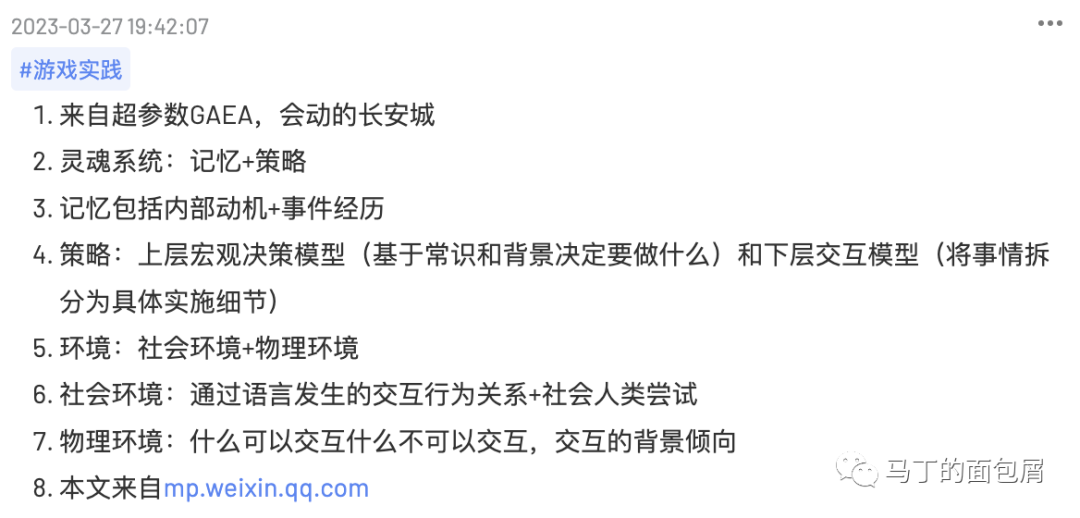
4. Embrace the uncontrollable
Many people ask me what is the essential difference between AI product managers and products from other industries.
My opinion was published in AIGC, I see Vol.12, and it has not changed so far: "Technical understanding, business judgment and product design are the basic skills of the product, and there will be no essential difference just because it is an AI product. The biggest essential difference of AI product manager lies in the control of uncontrollable. The tools in his hand are extremely uncontrollable in technology, market and effect, and the core ability of product manager is to control it and look for One piece in the ups and downs of the waves. "
Now send this sentence to everyone who has read here. Now this is not only the core competence of AI product managers, but also the competence that everyone should share under this storm of the times.




